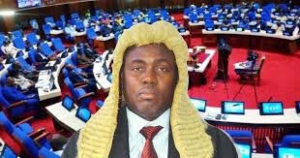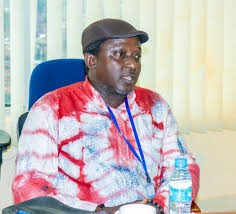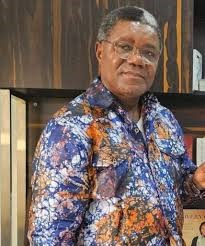By Mahmud Tim Kargbo
The Persons with Disability Act 2011 was enacted to promote dignity, equality and protection for persons with disabilities in Sierra Leone. This law is not symbolic. It is binding and enforceable. Its provisions define appointment procedures, tenure, and legal safeguards to ensure that one of the country’s most vulnerable groups is not subjected to arbitrary decisions.

Yet, on 5 June 2025, a letter signed by the Minister of Social Welfare, Mrs Melrose Karminty, appeared on social media announcing the appointment of Mr Brima Abdulai Sheriff as Chairman of the National Commission for Persons with Disability (NCPD). This announcement was made despite the fact that Dr Vandy Konneh, the legally appointed Chairman, is still serving a valid term. The legality of this decision is now under public and constitutional scrutiny.
WHAT THE LAW SAYS ABOUT APPOINTMENTS AND REMOVAL

According to Section 3(1) of the Persons with Disability Act 2011:
“There shall be a Chairman of the Commission who shall be appointed by the President on the recommendation of the Minister and subject to the approval of Parliament.”
Source: http://www.sierra-leone.org/Laws/2011-03.pdf
Section 4(1) of the Act states:
“The Chairman shall hold office for a term of three years and shall be eligible for reappointment for one further term only.”
Source: http://www.sierra-leone.org/Laws/2011-03.pdf
The law also specifies how a Chairman may be removed from office. Section 4(2) reads:

“A person shall cease to be a member of the Commission if he
- Resigns from office
- Is absent from three consecutive meetings of the Commission without reasonable excuse
- Dies or becomes incapacitated by reason of physical or mental illness
- Is declared bankrupt
- Is convicted of an offence involving fraud or dishonesty”
Source: http://www.sierra-leone.org/Laws/2011-03.pdf
None of these conditions currently apply to Dr Vandy Konneh. He was appointed in May 2024, approved by Parliament in June 2024, and his three-year term is valid until May 2027.

Additionally, Section 5 of the Act provides that the Commission may elect another member to act as Chairman only when a lawful vacancy has occurred under Section 4(2):
“Where a member of the Commission ceases to be a member in accordance with this Act, the Commission shall elect another member to act as Chairman until a new Chairman is appointed.”
Source: http://www.sierra-leone.org/Laws/2011-03.pdf
In the present case, no such vacancy exists.
FACTUAL TIMELINE
16 May 2024, Dr Vandy Konneh is appointed by the President as Chairman of NCPD
June 2024, Appointment is approved by Parliament
30 May 2025, The Secretary to the President issues a letter appointing Mr Brima Abdulai Sheriff as Chairman
5 June 2025, Minister Karminty’s letter surfaces online
June 2025, New appointment process begins despite no legal vacancy
ANALYSIS OF THE PRESIDENT’S LETTER
The presidential appointment letter, Ref: OP/EP 50/401/01, dated 30 May 2025, includes the following:
“In accordance with Section 3(2) of the Persons with Disability Act 2011, it has pleased His Excellency the President… to appoint you as Chairman… subject to the approval of Parliament.”

However, Section 3(2) must be read alongside Section 4, which governs tenure and removal. The President cannot appoint a new Chairman unless the position is vacant under Section 4(2). The letter does not mention a vacancy or any legal removal of Dr Konneh. As such, the appointment of Mr Sheriff contradicts both the letter and spirit of the Act.
CONSTITUTIONAL BREACHES
Section 6(1) of the Constitution of Sierra Leone 1991 states:
“This Constitution shall be the supreme law of Sierra Leone and any other law found to be inconsistent with it shall, to the extent of the inconsistency, be void.”
Source: http://www.sierra-leone.org/Laws/constitution1991.pdf
Section 40(3) outlines the responsibilities of the President:
“In the exercise of his functions, the President shall be guided by the objectives and principles contained in this Constitution and shall act in accordance with the laws of this Constitution and of Sierra Leone.”
Source: http://www.sierra-leone.org/Laws/constitution1991.pdf
By appointing a new Chairman while one is lawfully in office, the President risks breaching the Constitution by acting contrary to statutory law.
PARLIAMENT’S DUTY TO UPHOLD THE LAW
According to Section 105 of the Constitution:
“Subject to the provisions of this Constitution, Parliament shall be the supreme legislative authority for the Republic of Sierra Leone.”
Source: http://www.sierra-leone.org/Laws/constitution1991.pdf
Parliament’s approval of Dr Konneh’s appointment in 2024 was an exercise of this authority. If it now approves Mr Sheriff without any legal removal of Dr Konneh, it would contradict its own legislation and violate the rule of law.
MINISTERIAL RESPONSIBILITY
Under the Act, the Minister may recommend a Chairman to the President, but only when a vacancy has occurred under the circumstances described in Section 4(2). Recommending a new Chairman without a legal vacancy misrepresents the facts and undermines the integrity of the Ministry. It also misleads the executive and Parliament, making the process legally and ethically flawed.
PATTERN OF SYSTEMIC UNDERMINING
Beyond the unlawful attempt to replace Dr Konneh, a formal letter of complaint submitted by the Chairman in June 2025 reveals a broader pattern of conduct by the Minister that threatens the operational capacity and autonomy of the Commission.
Key concerns raised include:
The unilateral removal of regional staff from the Commission and their covert reassignment to the Ministry of Social Welfare without official transfer procedures or consultation. This action has led to the closure of the Southern and Eastern Regional Offices, depriving thousands of persons with disabilities of essential services.
The exclusion of the Commission from critical disability initiatives, including the UNDP-funded Kush rehabilitation project and the $1 million India-UN development partnership fund, despite the Commission being the statutory authority for such programmes.
A communication blackout, including the blocking of the Chairman’s official number and the Minister’s withdrawal from the national disability coordination forum, NaCEPED.
Public disrespect towards the Chairman in official and community settings, diminishing the credibility of his office and weakening the Commission’s standing with its stakeholders.
These issues directly contradict the statutory purpose of the Commission as set out in Section 6 of the Persons with Disability Act 2011:
“The object for which the Commission is established is to ensure the general well-being of persons with disabilities.”
Source: http://www.sierra-leone.org/Laws/2011-03.pdf
They also undermine the Government’s stated commitment to disability inclusion as outlined in the Mid-Term National Development Plan (2024–2030), thereby weakening the public trust in institutions responsible for social equity and human rights.
RECOMMENDATIONS
Parliament should suspend the approval of Mr Sheriff’s appointment until Dr Konneh’s tenure ends or is lawfully vacated
The President’s Office should withdraw the 30 May 2025 appointment letter
An independent investigation should be launched into the Minister’s recommendation process and conduct
The Sierra Leone Bar Association should issue an advisory opinion on this legal conflict
Civil society should call for institutional accountability and full adherence to disability rights laws
RULE OF LAW MUST PREVAIL
This is not a minor administrative issue. It is a constitutional test. The rule of law requires that all public officers, from Ministers to the President, act within the limits prescribed by law. If laws protecting the vulnerable are so easily undermined, then the very foundation of justice is weakened.
The Persons with Disability Act 2011 remains the law of Sierra Leone. It binds all arms of government equally. It must be respected, upheld and enforced without exception.